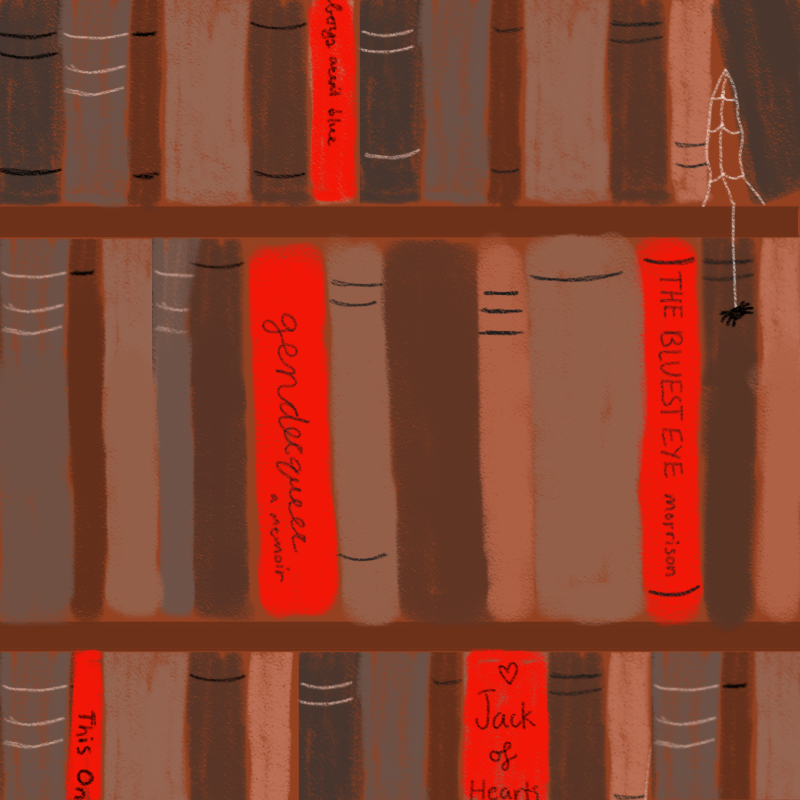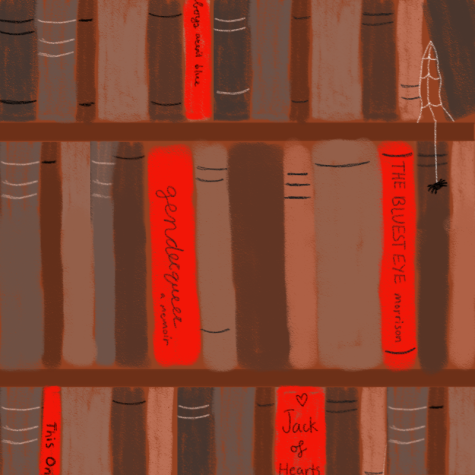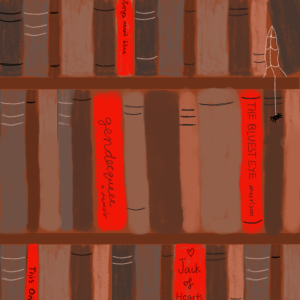Texas House Bill 900 would require book vendors to review books for sexual content before selling to public schools
April 6, 2023
A Texas House of Representatives bill proposes banning books with sexual content from public school libraries.
HB 900, advanced by the Public Education Committee on March 29, would require all school book vendors to give any book with references to sex a rating of either “sexually relevant” or “sexually explicit.”
Vendors would not be able to sell any sexually explicit books that “describes or portrays sexual conduct … in a patently offensive way,” to school districts. Books deemed sexually relevant under the law — defined as any material describing or portraying sexual conduct — would require parental approval for students to check out.
The legislation has raised red flags, however, for some advocates who say its vague language targets certain minority groups more than others.
“(The bill) is not necessarily about trying to protect children as much as it is about trying to censor what children see,” said Teah Mbang, an applied learning and development junior who plans on becoming a teacher.
Camille Reyes, a youth and community studies freshman, said placing a rating or content warning at the beginning of a book would be helpful to warn students of inappropriate content, but they said the government should not take books off the shelves.
“I personally am not against the actual rating of books,” Reyes said. “I think all kinds of books should be accessible to students, but I don’t believe that every student should be reading every book on the shelf.”
A 2022 analysis from PEN America found Texas has already banned more books from school libraries in the past year than any other state.
In 2021, former Texas representative Matt Krause created a book ban list that sparked school districts to review hundreds of books within their libraries. The list disproportionately impacted stories from LGBTQ+ people and people of color, said Carisa Lopez, senior political director at Texas Freedom Network, a statewide social justice and advocacy organization.
Mbang said she sees this bill having a similar effect.
“Banning books and not allowing school libraries to be filled with books that represent a multitude of identities really robs children of seeing themselves reflected in media (and) also robs them of being able to develop a sense of acceptance for other people who have different identities than their own,” Mbang said.
During a House Public Education Committee hearing for the bill, opponents raised concerns that the bill’s language was too ambiguous, which Lopez said would make the bill difficult to enact.
“It creates a lot of bureaucracy and red tape to allow students to access certain types of books,” Lopez said. “It feels hard to implement because there’s a lot of vague definitions in this bill about how to categorize and what ‘explicit’ means.”
HB 900 is expected to advance to the full House for a vote, although no date has been set.
“We do have an uphill battle in the state of Texas,” Lopez said. “But we’ve seen people turning out this (legislative) session in unprecedented numbers and it’s hard to ignore that. … We’re going to do our best to fight back against HB 900 and all other bills like it.”






